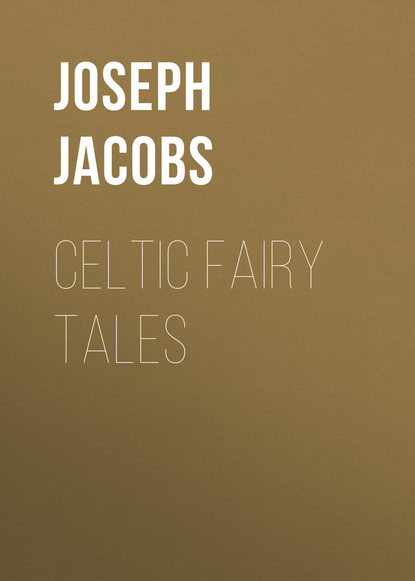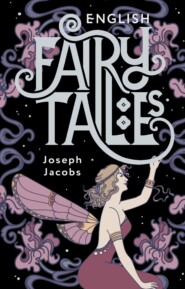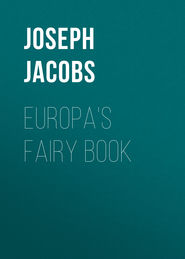По всем вопросам обращайтесь на: info@litportal.ru
(©) 2003-2025.
✖
Celtic Fairy Tales
Настройки чтения
Размер шрифта
Высота строк
Поля
"How did you forget?" asked she.
"The woman of the house gave me a drink that made me forget."
"Well, don't forget telling him this night; and if she gives you a drink, don't take it from her."
As soon as the cowboy came home, the eldest sister offered him a drink. He refused to take it till he had delivered his message and told all to the master. The third day the prince went down with his gun and a silver bullet in it. He was not long down when the whale came and threw Trembling upon the beach as the two days before. She had no power to speak to her husband till he had killed the whale. Then the whale went out, turned over once on the broad of his back, and showed the spot for a moment only. That moment the prince fired. He had but the one chance, and a short one at that; but he took it, and hit the spot, and the whale, mad with pain, made the sea all around red with blood, and died.
That minute Trembling was able to speak, and went home with her husband, who sent word to her father what the eldest sister had done. The father came, and told him any death he chose to give her to give it. The prince told the father he would leave her life and death with himself. The father had her put out then on the sea in a barrel, with provisions in it for seven years.
In time Trembling had a second child, a daughter. The prince and she sent the cowboy to school, and trained him up as one of their own children, and said: "If the little girl that is born to us now lives, no other man in the world will get her but him."
The cowboy and the prince's daughter lived on till they were married. The mother said to her husband "You could not have saved me from the whale but for the little cowboy; on that account I don't grudge him my daughter."
The son of the king of Emania and Trembling had fourteen children, and they lived happily till the two died of old age.
JACK AND HIS MASTER
A poor woman had three sons. The eldest and second eldest were cunning clever fellows, but they called the youngest Jack the Fool, because they thought he was no better than a simpleton. The eldest got tired of staying at home, and said he'd go look for service. He stayed away a whole year, and then came back one day, dragging one foot after the other, and a poor wizened face on him, and he as cross as two sticks. When he was rested and got something to eat, he told them how he got service with the Gray Churl of the Townland of Mischance, and that the agreement was, whoever would first say he was sorry for his bargain, should get an inch wide of the skin of his back, from shoulder to hips, taken off. If it was the master, he should also pay double wages; if it was the servant, he should get no wages at all. "But the thief," says he, "gave me so little to eat, and kept me so hard at work, that flesh and blood couldn't stand it; and when he asked me once, when I was in a passion, if I was sorry for my bargain, I was mad enough to say I was, and here I am disabled for life."
Vexed enough were the poor mother and brothers; and the second eldest said on the spot he'd go and take service with the Gray Churl, and punish him by all the annoyance he'd give him till he'd make him say he was sorry for his agreement. "Oh, won't I be glad to see the skin coming off the old villain's back!" said he. All they could say had no effect: he started off for the Townland of Mischance, and in a twelvemonth he was back just as miserable and helpless as his brother.
All the poor mother could say didn't prevent Jack the Fool from starting to see if he was able to regulate the Gray Churl. He agreed with him for a year for twenty pounds, and the terms were the same.
"Now, Jack," said the Gray Churl, "if you refuse to do anything you are able to do, you must lose a month's wages."
"I'm satisfied," said Jack; "and if you stop me from doing a thing after telling me to do it, you are to give me an additional month's wages."
"I am satisfied," says the master.
"Or if you blame me for obeying your orders, you must give the same."
"I am satisfied," said the master again.
The first day that Jack served he was fed very poorly, and was worked to the saddleskirts. Next day he came in just before the dinner was sent up to the parlour. They were taking the goose off the spit, but well becomes Jack he whips a knife off the dresser, and cuts off one side of the breast, one leg and thigh, and one wing, and fell to. In came the master, and began to abuse him for his assurance. "Oh, you know, master, you're to feed me, and wherever the goose goes won't have to be filled again till supper. Are you sorry for our agreement?"
The master was going to cry out he was, but he bethought himself in time. "Oh no, not at all," said he.
"That's well," said Jack.
Next day Jack was to go clamp turf on the bog. They weren't sorry to have him away from the kitchen at dinner time. He didn't find his breakfast very heavy on his stomach; so he said to the mistress, "I think, ma'am, it will be better for me to get my dinner now, and not lose time coming home from the bog."
"That's true, Jack," said she. So she brought out a good cake, and a print of butter, and a bottle of milk, thinking he'd take them away to the bog. But Jack kept his seat, and never drew rein till bread, butter, and milk went down the red lane.
"Now, mistress," said he, "I'll be earlier at my work to-morrow if I sleep comfortably on the sheltery side of a pile of dry peat on dry grass, and not be coming here and going back. So you may as well give me my supper, and be done with the day's trouble." She gave him that, thinking he'd take it to the bog; but he fell to on the spot, and did not leave a scrap to tell tales on him; and the mistress was a little astonished.
He called to speak to the master in the haggard, and said he, "What are servants asked to do in this country after aten their supper?"
"Nothing at all, but to go to bed."
"Oh, very well, sir." He went up on the stable-loft, stripped, and lay down, and some one that saw him told the master. He came up.
"Jack, you anointed scoundrel, what do you mean?" "To go to sleep, master. The mistress, God bless her, is after giving me my breakfast, dinner, and supper, and yourself told me that bed was the next thing. Do you blame me, sir?"
"Yes, you rascal, I do."
"Hand me out one pound thirteen and fourpence, if you please, sir."
"One divel and thirteen imps, you tinker! what for?"
"Oh, I see, you've forgot your bargain. Are you sorry for it?"
"Oh, ya—no, I mean. I'll give you the money after your nap."
Next morning early, Jack asked how he'd be employed that day. "You are to be holding the plough in that fallow, outside the paddock." The master went over about nine o'clock to see what kind of a ploughman was Jack, and what did he see but the little boy driving the bastes, and the sock and coulter of the plough skimming along the sod, and Jack pulling ding-dong again' the horses.
"What are you doing, you contrary thief?" said the master.
"An' ain't I strivin' to hold this divel of a plough, as you told me; but that ounkrawn of a boy keeps whipping on the bastes in spite of all I say; will you speak to him?"
"No, but I'll speak to you. Didn't you know, you bosthoon, that when I said 'holding the plough,' I meant reddening the ground."
"Faith, an' if you did, I wish you had said so. Do you blame me for what I have done?"
The master caught himself in time, but he was so stomached, he said nothing.
"Go on and redden the ground now, you knave, as other ploughmen do."
"An' are you sorry for our agreement?"
"Oh, not at all, not at all!"
Jack, ploughed away like a good workman all the rest of the day.
In a day or two the master bade him go and mind the cows in a field that had half of it under young corn. "Be sure, particularly," said he, "to keep Browney from the wheat; while she's out of mischief there's no fear of the rest."
About noon, he went to see how Jack was doing his duty, and what did he find but Jack asleep with his face to the sod, Browney grazing near a thorn-tree, one end of a long rope round her horns, and the other end round the tree, and the rest of the beasts all trampling and eating the green wheat. Down came the switch on Jack.
"Jack, you vagabone, do you see what the cows are at?"
"And do you blame, master?"
"To be sure, you lazy sluggard, I do?"
"Hand me out one pound thirteen and fourpence, master. You said if I only kept Browney out of mischief, the rest would do no harm. There she is as harmless as a lamb. Are you sorry for hiring me, master?"
"To be—that is, not at all. I'll give you your money when you go to dinner. Now, understand me; don't let a cow go out of the field nor into the wheat the rest of the day."
"Never fear, master!" and neither did he. But the churl would rather than a great deal he had not hired him.







